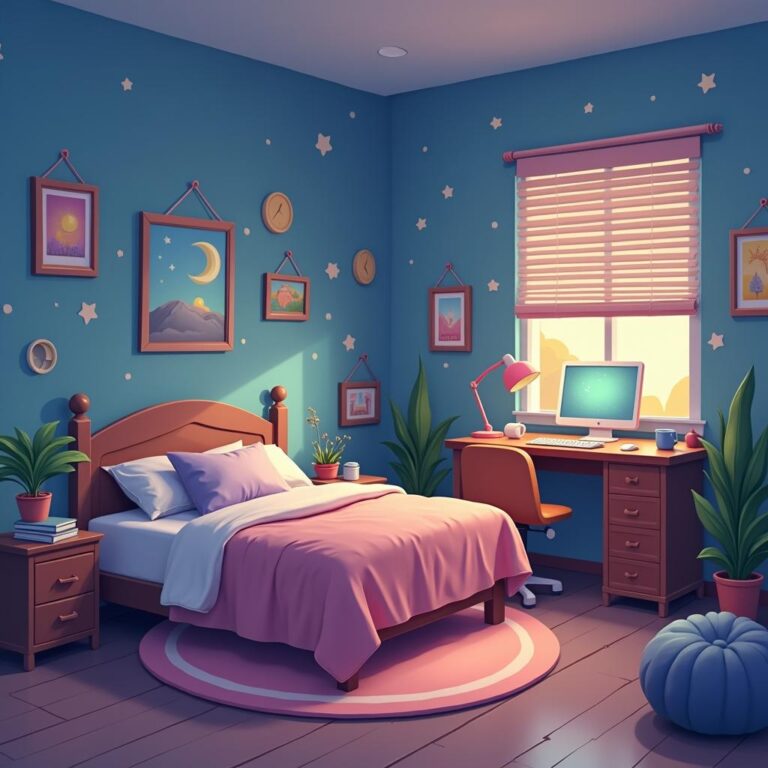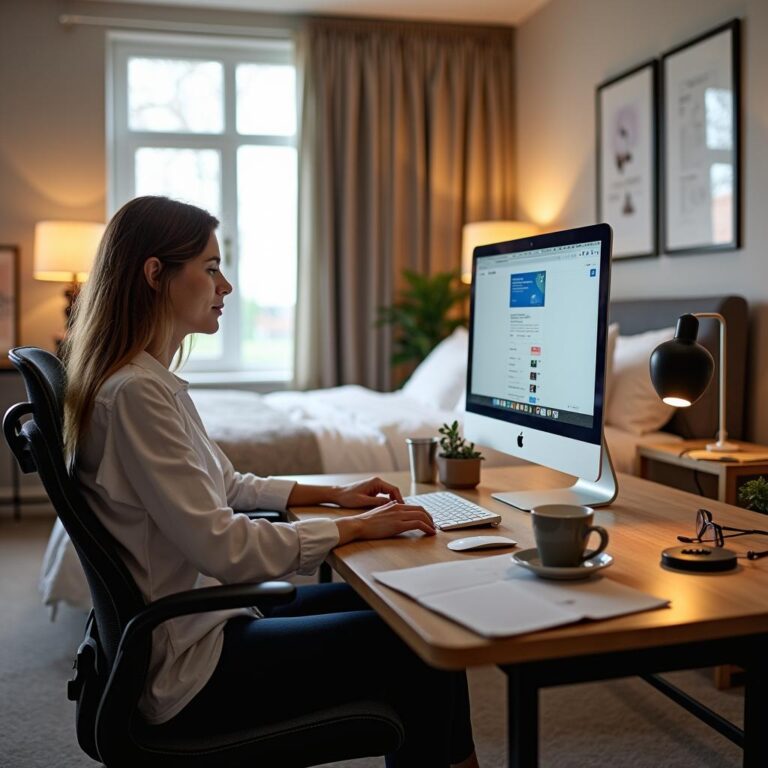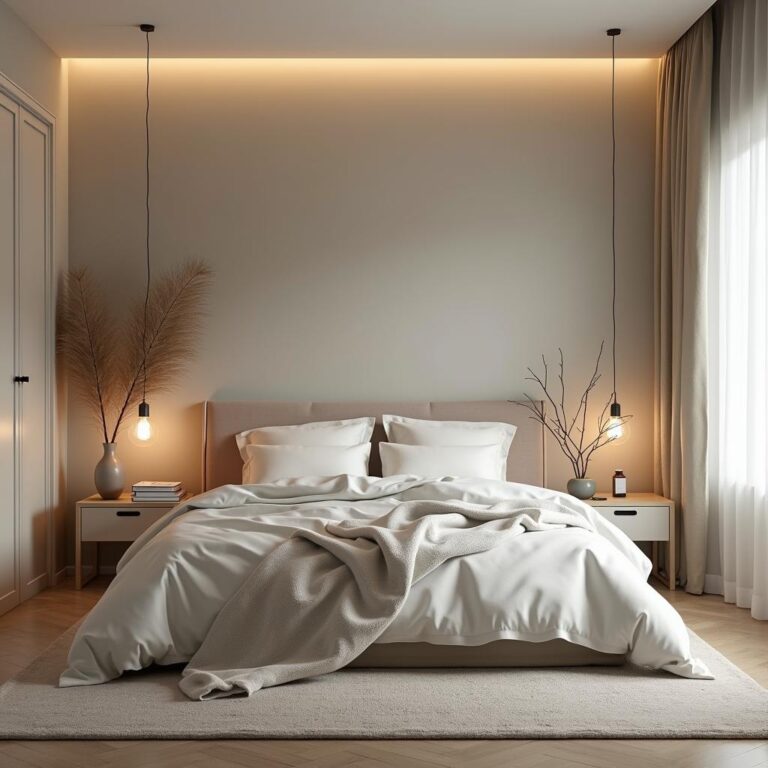How to Optimize Your Bedroom for Better Sleep: The Complete Guide
In today’s fast-paced world, quality sleep has never been more essential. Many people struggle to get the rest they need, often due to their sleep environment. A well-optimized bedroom can dramatically improve your sleep quality. This complete guide will explore various strategies on how to optimize your bedroom for better sleep, ensuring you wake up refreshed and ready to tackle the day.
1. Choose the Right Mattress and Pillows
The foundation of a good night’s sleep starts with the right mattress and pillows. Ensure your mattress provides adequate support for your body type and sleeping position. Whether you prefer a firmer or softer mattress, it’s crucial to find one that suits your needs.
When it comes to pillows, consider your preferred sleeping position. Side sleepers may benefit from a thicker, firmer pillow, while back sleepers might prefer a medium-height pillow. Stomach sleepers typically need a softer, flatter pillow to prevent neck strain. Don’t hesitate to invest in quality bedding, as it can significantly enhance your sleep experience.
2. Control Your Bedroom Environment
- Light: Natural light and darkness significantly affect sleep quality. Use blackout curtains to block out any outside light that can disturb your slumber. Additionally, consider using dimmable lamps or bedside lights to create a calming ambiance before bedtime.
- Temperature: The ideal sleeping temperature for most people is between 60°F and 67°F (15°C to 19°C). Experiment with your thermostat, bedding, and clothing to find the perfect temperature that facilitates restful sleep.
- Noise: Loud sounds can disrupt your ability to fall and stay asleep. If you live in a noisy area, try white noise machines, earplugs, or calming sounds to drown out disruptive noises.
3. Declutter Your Space
A cluttered bedroom can lead to a cluttered mind, making it difficult to relax at bedtime. Take time to declutter your space and get rid of items that you no longer need. Aim for a minimalist aesthetic that promotes calmness and relaxation. Consider storage solutions that keep your belongings organized and out of sight, giving you a serene environment conducive to sleep.
4. Establish a Sleep Routine
Creating a consistent sleep routine can signal your body that it’s time to wind down. Aim to go to bed and wake up at the same time every day, even on weekends. Incorporate relaxing activities into your nightly routine, such as reading, taking a warm bath, or practicing mindfulness.
Be mindful of your evening activities. Limit screen time and exposure to blue light from devices at least an hour before bed. Instead, try engaging in activities that promote relaxation and help your mind prepare for sleep.
5. Choose Calming Colors and Decor
The colors and decor in your bedroom can significantly impact your relaxation and sleep quality. Opt for soothing colors such as soft blues, greens, or neutrals. These hues promote tranquility and comfort, ideal for a restful sleep environment.
When it comes to decor, choose items that inspire peace, such as nature-themed artwork or soft textiles. Avoid loud patterns or bright colors that might stimulate your mind rather than allow it to relax.
6. Limit Distractions
Evaluate your bedroom for any distractions that may hinder your sleep quality. This might include keeping electronic devices out of the bedroom or ensuring your bedroom is free from work-related materials. By creating a space dedicated solely to rest, you promote a stronger connection between your environment and sleep.
Consider designating your bed for sleep only, avoiding activities like working or watching television in bed. This creates a mental association between your bed and sleep, reinforcing the idea that it’s a place for rest.
7. Incorporate Aromatherapy
Essential oils and aromatherapy can significantly enhance your sleep experience. Lavender, chamomile, and jasmine are known for their calming effects and can promote relaxation.
Consider using a diffuser to disperse essential oils in your bedroom or using scented candles to create a tranquil atmosphere. Just be cautious with open flames and choose non-toxic options when creating your sleep sanctuary.
8. Ensure Good Air Quality
Air quality plays a vital role in sleep quality. Ensure your bedroom is well-ventilated and free from allergens. Consider investing in an air purifier to remove dust, pollen, and other allergens from the air.
Houseplants are another excellent option for enhancing air quality while providing a touch of nature. Plants such as snake plants and peace lilies can help filter the air, creating a fresher and healthier sleeping environment.
9. Design Your Bedroom for Comfort and Relaxation
Your bedroom should reflect comfort. Invest in quality bedding, soft throws, and cozy blankets that invite relaxation. Incorporate comfortable seating, such as a plush chair or chaise lounge, for those moments when you want to curl up with a book or meditate before bed.
Arranging your furniture in a way that creates an inviting atmosphere can further enhance your sleep sanctuary. Ensure your bed is the focal point while leaving space for movement and accessibility.
10. Maintain a Healthy Lifestyle
Lastly, optimizing your sleep environment goes hand-in-hand with maintaining a healthy lifestyle. Incorporate regular physical activity into your routine, as it can help improve sleep quality. Aim for at least 30 minutes of moderate exercise most days, but avoid vigorous exercise close to bedtime.
Be mindful of your diet as well. Consuming heavy meals or caffeine too close to bedtime can interfere with your ability to fall asleep. Instead, opt for light snacks if you’re hungry before bed.
Final Thoughts
Optimizing your bedroom for better sleep is vital for your overall well-being. By focusing on the right mattress, controlling your bedroom environment, decluttering, establishing a sleep routine, and enhancing air quality, you set the stage for a restful night. Remember that creating an inviting, calming space goes beyond just physical adjustments; it’s about cultivating a lifestyle that supports good sleep hygiene.
By following these tips and making conscious choices, you can transform your bedroom into a sleep haven, ensuring you wake up rejuvenated each day. Embrace these strategies and take the first step towards better sleep tonight!







